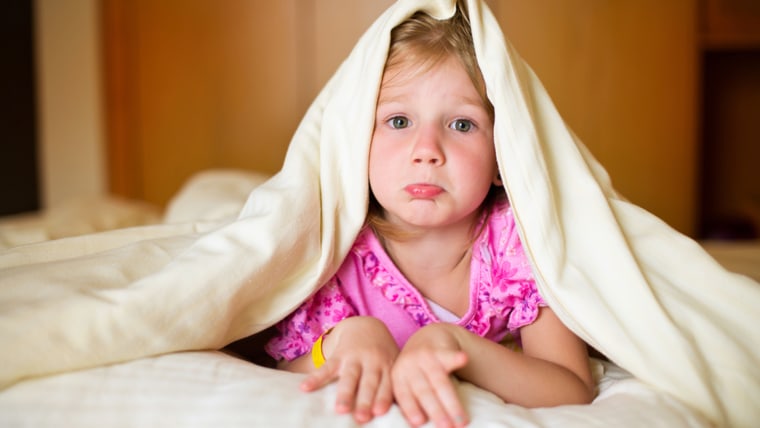Knowing the "right age" to give permissions to kids challenges all parents, especially with that first born child. As is the case with most of parenting, there is not one clear cut answer to any question; there is not one definitive way to do anything.

I can tell you for sure that peer pressure should not be the overriding reason for any decision that you make. Your decisions need to be based on your child, his readiness and maturity, and not what his friends are doing.
Another truth is that your first born is your "practice child." You are a completely different parent with your second born. With experience comes not only less fear and more confidence, but usually a more relaxed attitude all around. You know your child won't break, life will go on, fixes and do-overs are just fine.
On top of that, parents often have a difficult time saying no to the second born, when the first born has already been granted permission to do something. Hence, the right age can be different for child number two than it was for number one.
Therefore, you will notice that each answer begins with "It depends..."
What is the right age for a child to be left home alone?
It depends...
First of all, know that some states have explicit laws about children being left home alone, so be sure to check your local laws. Some children will be ready to stay home alone at 10 and others won't be ready when they are 13. And there is a difference in staying home alone at night and during the day.
There are two major things to consider when deciding if your child is READY to be left at home alone:
1) Does the child want to stay home alone?
2) Is the child mature enough to stay home alone, to handle emergencies that could occur in your absence?
This piece offers come good questions to ask yourself, as well as ways to prepare. Regardless of what age you decide to give it try, the ability to stay home alone is a process. It should be built over time, starting with a short period of time when you are very close by. Gradually extend the time and distance, allowing the child to grow her confidence in being home alone.
What is the right age for a child to walk to school without an adult?
It depends...
While there are no legal guidelines or laws about this one, common sense tells us that children under 8 should not walk to school without an adult. Readiness to walk to school alone is a gradual process. Among the things to be considered are the walk itself — the distance, the length of time it takes, the traffic on the route, the area through which he will pass.
You must also consider your child himself and his maturity. Is he streetwise? How aware is he when he rides his bike? Does he stop and look both ways when you don't demand it? Is he easily distracted? Is he cautious enough?

What is the right age for a sleepover
It depends...
Some children are ready and raring to go at 5; others still can't sleep without mommy or daddy in the home or in their bed. Some children sleep at their grandparents' or cousin's home, but they would not be ready for spending the night at a peer's home. Sometimes the child is ready, but it is the parent who is not.
Readiness is an important component if you, the parent, love your sleep. If your child isn't ready, you are likely to be making a middle-of-the-night pick-up run! I have clients who firmly say they will never allow a sleepover, as they are worried about the influence of the older siblings who may be there, or the parents' ability to care of their child, or they simply do not trust anyone but family members.
Sleepovers are great for kids who are ready. Not only do they encourage their independence, self-reliance, and self-care, but they help them to see how different people and families can be.
One of the ways that parents encourage their children's independence is by showing faith in their self-reliance. If you don't trust in your child's ability to make good choices for himself in your absence, why should he trust himself?
Your comfort level will be an outgrowth of your having information. Knowing things like, "Who will be in the house? Where will the kids sleep? What are your rules for bedtime? How able is your child to ask for what he needs?" will certainly help.
If your child is hesitant to do a sleepover but really wishes he were able, you might try a "sleepunder." It's when your child stays at his friend's home through dinner, bath, PJs and story time, after which you pick him up. It's a great way to start.

What is the right age to tell kids about Santa? (or the Tooth Fairy? or the Easter Bunny?)
It depends...
Some children figure out the answer to these questions long before we want them to. Others have older siblings who spill the beans. But by the age of 7, most children know or have an inkling that Santa isn't real. (It often comes with the realization that Santa was at each of the stores you visited for your holiday shopping that day.)
While parents may love the innocence that accompanies believing in Santa or the Tooth Fairy, they fear they will be outed as liars of sorts if they fess up. Rest assured, it is likely that you will not be the one to have to tell your child. He will, however, come to you for verification.
What is the right age to get a cell phone?
It depends....
This is a decision that many parents do not research well enough and which often causes them to fall victim to peer pressure. When your child claims that EVERYONE has a cell phone, make a few calls and ask those parents how it's going for them. Just ask the parent of the third grader who begged and pleaded for a cell phone, professing his mature trustworthiness and responsible nature, and promptly lost his phone. Or ask the fourth grade parent who sees that his child uses the phone only for online games.
Before making the cell phone decision, a parent needs to ask herself if there is a need for the phone. Then look at the child's track record for being responsible, taking care of his possessions and following through on family rules.
Many of us long for the character building that happened before cell phones were available. Children used to be told to be at the park entrance at 5 p.m. If they weren't there, the park privileges were gone. Today, we simply call them to come out. No responsibility needed. So be sure to give some thought to what your child will not learn by having a cell phone.

A cell phone is a computer. Having one gives the child access to many of the things for which you have carefully put parental controls on your home computer. Is your child ready for the easy access to the great World Wide Web when you are not there to supervise?
If it is a matter of you needing to be in touch with your child, consider getting him a phone, just a phone. Find one that has room for three contacts: home, Mom's work, and Dad's work. Many experts agree that a good age for a child to have a cell phone is middle school. That seems to be an age and context when children are given and respond to more responsibility more successfully. Regardless of when you grant that urgent wish, be sure to have a cell phone contract that delineates the responsibilities and consequences that accompany having a phone.
If you really want him to be invested in his phone, make sure he is responsible for some, if not all of the monthly cost, too.
What is the right age to shave her legs?
It depends...
For some young girls, shaving their legs or arm pits is merely a show of being grown up. In that case, it is a good idea to set an age at which you believe it will be OK. That is typically around 12 or 13.
For others, shaving is a genuine need. With the onset of puberty coming at such varying ages, for some as early as 8 or 9, the quality of the body hair changes, becoming darker and coarser. The need to shave feels urgent to the growing young woman. There are some girls who are just plain hairy. I have heard stories from clients about their daughters who refuse to wear skirts or short sleeves, lest their hairy legs or arm pits show.
This reality goes beyond peer pressure. To be teased for something over which you have no control and which seems socially unacceptable (unless you live outside the U.S.) is quite painful. Young girls may not realize that shaving and using a razor can be tricky business. They may not realize that once you begin shaving, it is something that has to be done on a regular basis.
Girls who are older, in the 12 to 14 year range, are likely to have the maturity to handle a razor without cutting themselves. If your young daughter needs to remove the hair because she is particularly hirsute, perhaps a depilatory cream is a good idea.
Sometimes Mom helping to use scissors to cut the few arm pit hairs will do the trick, too.

What is the right age to have email, to have a Facebook account, or to be on Instagram?
It depends...kind of.
It depends on your child and the context in which your child lives, as well as on your feelings about his entering the lightning speed of the World Wide Web.
Email is certainly a sure fire way to practice keyboarding, writing, spelling, grammar, reading...all of which are necessary. We also know that 80 percent of the world's email is spam, and many young children do not have the maturity to recognize spam and filter it out immediately.
There are schools that give their students email accounts within the school community only. Doing so can quench a child's thirst or fuel it. There are families who share a family email account which is another way to enter the world of cyber communication. Each family will have to decide for themselves. A few points to consider are: What is the reason he wants an email account and will he use it? How responsible is your child? Is he a reasonable rule follower? How mature are your child's communication skills, especially when he is an emotionally elevated state?

Email providers have different minimum age requirements, which will help you to make your decision. And you can always try your child out with the Internet by observing his usage of your family email address. Without question, email use can only happen when the child is old enough to understand your very clear, firm, and pointed usage rules and why you need to have them. Without question, a contract between you and your email-using child is necessary.
While there are parents who choose to allow their children to have Facebook or Instagram accounts, they are in fact breaking usage rules. Facebook, Instagram, Twitter, Pinterest, Kik and Snapchat say that children must be THIRTEEN YEARS OLD in order to register for service. Therefore, the answer to when is the right age for any of these is 13, according to the law.
When that right age arrives, there will still be some children who will not be ready to follow your rules for usage. For them, even older might be the right age. With this in mind, it is imperative that you have some form of a contract for usage with which your child must comply. Samples for these can be found here.
What is the right age to get your ears pierced?
It depends...
Ear piercing is one of those practices about which parents have different opinions. Most agree it is something that is acceptable for young, preteen children as long as it is a single hole and only on the lobe. Body piercing is a whole different story. While ear piercing has been around forever in our culture, piercing other parts (tongues, lips, belly buttons, nipples, genitals, facial areas) is just starting to be more common among certain groups of people.
There is a cultural component to ear piercing. Some cultures will pierce a baby's ears as soon as she is born. Others frown upon it, believing that our bodies are on loan, not to be desecrated in any way.
Doctors suggest that a family wait at least six months until the infant's immune system has time to develop, as infections are not uncommon. Experts agree the right age for ear piercing depends upon the child's ability to take responsibility for the care of her ears (to guard against infection), as well as the parent's strong feelings about it.
When a parent has strong feelings, as hard as it often is for the child to accept, she just might have to do so. Life is very much about compromise. It is a good idea, however, to let the child know at what age it will be OK for her to pierce her ears. A child can handle a disappointment much better knowing that there is a light at the tunnel, regardless of how dim it may seem right then.

What is the right age for body art?
It depends....
Body art (body piercings and tattoos, otherwise known "ink," and unusual hair dyes) has certainly grown in popularity. As with all fads of this kind, it usually starts with college age and older and dribbles on down. Look at fashions for kids today. Abercrombie's styles, which were initially aimed at the 18 to 25 year old sector, are now popular with teens and even tweens. Tween clothing mimics the styles worn by older kids and adults. It is not a surprise that children enjoy wearing faux tattoos and piercing.
I recently met a client whose 9-year-old daughter had pink hair. Her mother assured me it was semi-permanent! Almost every state has laws addressing some aspect of body art, and at least 45 states have laws prohibiting minors from getting tattoos. Thirty eight states have laws that prohibit both body piercing and tattooing on minors without parental permission.
Thank goodness a parent can fall back on the law in some cases. But whether you allow your child to change his/her hair color or have a different haircut is a more difficult decision. No laws about that! This is one of the ways that kids distinguish themselves and stand apart from their parents' fuddy duddy world. Thankfully, hair grows and color washes out.
The answer to these has everything to do with your personal opinions and your ability to calmly and rationally communicate with your child. A flat out NO without hearing the child's point of view will surely backfire, perhaps leading to sneaky behavior. I suggest a conversation wherein your child feels she has been heard. Giving the child an idea about when it might be possible ("When you are in high school;" "When you are old enough to pay for it," etc.) will make your decision more palatable.
Or you may decide that for your teenage child, it is a good way for her to express her individuality harmlessly. Hopefully, you will have had a calm discussion about all of the possible repercussions of being so noticeable before the shower water runs purple.
What is the right age to wear make-up?
It depends...on you!
Many little girls and some little boys, upon observing their mommies putting on make-up, are eager to give it a try. Parents don't have trouble with this, knowing that it is just a part of typical development, playing grown-up and trying on different roles.
But when the 10- or 11-year-old starts to ask for make-up, parents blanch because she is so young — too young. Make-up, clothing and hairstyles fall into a nebulous area in parenting, as there are no rules. Most parents feel wearing make-up at an elementary school age sends the wrong message and it feels wrong.
Wearing makeup for dress-up or for costumes is a whole different story. And your child can experiment with wild outfits, crazy hairstyles, and fancy make-up when he or she is at home.

Regardless of your rules, it is a good idea to emphasize how beautiful your daughter is without make-up. Explain that she doesn't really look like herself when she is made-up. You will add that beauty grows from the inside out; how one makes up her face does not make her pretty or attractive. You are attractive because of the kind of person you are.
When the time comes for wearing make up outside the house, and that could be middle school — 13 or 14 years old — start with a very light touch. Lip gloss and mascara will feel special to the child who has worn nothing.
Parents will exert their influence on their children when it comes to their health, safety, and family values, even if it doesn't feel that way. Your child will rebel, but your influence, opinions, and advice do make a difference in the big picture.
Betsy Brown Braun is a child development and behavior specialist, parent educator, multiple birth parenting consultant. Her books include "Just Tell Me What to Say: Sensible Tips and Scripts for Perplexed Parents."